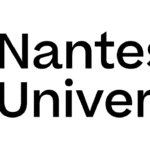Contexte
Ce poster utilise des résultats obtenus dans le cadre du projet de recherche MUSCAS, MUlti-SCAle Stochastic computation for MRE, mené par l’Université de Nantes.
Résumé de la publication
Bio-colonisation is shown to affect the ageing of materials and the behaviour of offshore structures. It was recognized in the 70’s that bio-colonisation might change the loading due to hydrodynamic and mass effects. Mooring systems and umbilicals belong to a family of components sensitive to biocolonisation, which is therefore impacting their lifetime. However, marine growth is a stochastic process with time and space which is hard to predict without previous knowledge and environmental parameters. Our purpose is then to quantify, when it is possible, parameters of bio-colonisation all along the lifetime in order to reduce uncertainties on long term fatigue damages.
The poster is presenting a methodology which consists of updating an ‘a priori’ spatial model for biocolonisation by combining tension measurements in mooring lines with environmental parameters measurements during a Qualifying Sea State and solving an inverse problem. Thanks to this mechanical engineering monitoring of marine growth, temporal models are made more accurate and through time-dependent reliability analysis, mooring lines maintenance can be improved.
Voir le projet de recherche MUSCAS
Le projet MUSCAS a été réalisé dans le cadre du WEAMEC et avec le financement de la Région des Pays de la Loire, par l’Université de Nantes


